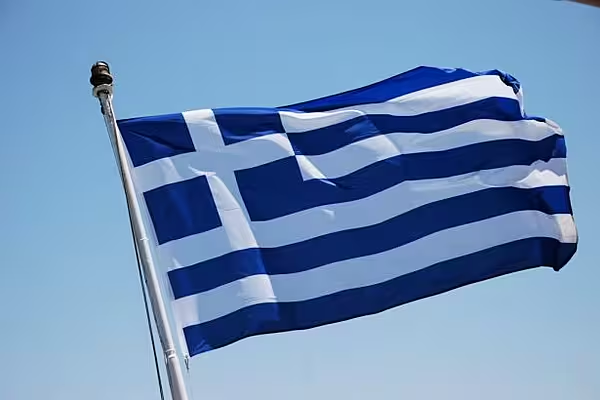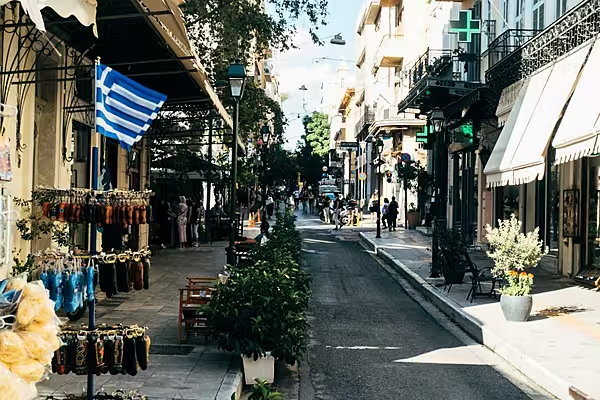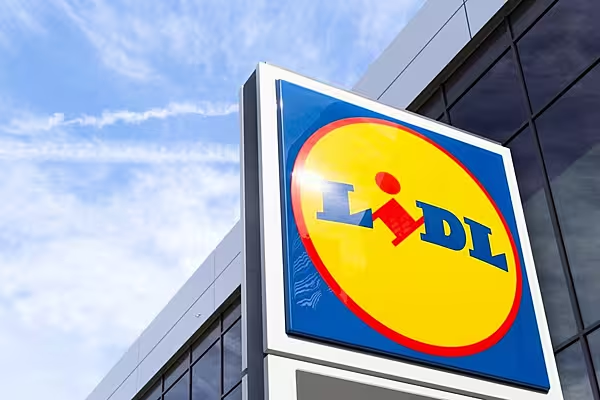Greek start-up Pop Market believes that it can potentially go head to head with major supermarket players in a few years’ time, as consumer habits change. Stephen Wynne-Jones met its CEO and co-founder, Takis Malavetas. This article first appeared in ESM March/April 2022.
With the quick-commerce sector becoming increasingly crowded, sometimes it helps to stand out. With its bright-pink branding and 15-minute delivery promise, Greek start-up Pop Market certainly knows how to get itself noticed, but behind the vivid marketing, there’s a powerful engine, which CEO and co-founder Takis Malavetas believes has the potential to make a serious dent in the Greek grocery landscape – and potentially other markets, too.
“Food delivery has been going on for many decades in Greece. When I was a little boy, you could call up your local souvlaki restaurant and get a delivery within ten or 20 minutes,” Malavetas tells ESM.
“With the growth of the Internet, Greece has embraced new delivery trends, and, at the same time, we have a big share of wallet that goes into food and grocery. So, with me coming from Greece and knowing this space really well, it was a good place to start.”
Growth Potential
Active since October 2021, Pop Market is not the only food e-commerce player operating in Greece. Delivery Hero’s Efood.gr platform has had a presence in the market for a decade, while Finland’s Wolt has also developed a presence, but given the relatively low penetration of online grocery in the country (around 2% to 3%) and massively changed consumer habits as a result of the pandemic, Malavetas believes that the growth potential for Pop Market is huge.
“You have some food delivery players in this market, but, predominantly, these are known to consumers as delivery aggregators,” he says. “That’s very different from being a pure player. When it comes to the app experience, or the entire end-to-end consumer experience, there hasn’t been a case where a food delivery player has won over a pure-play quick-commerce player, so we knew what we needed to do, and we knew how fast we needed to do it.”
Pop Market’s seed-financing round last year – backed by 468 Capital and Global Founders Capital – was one of the biggest for a Greek start-up, with the group’s vertically integrated model, based around a series of ‘dark stores’, resonating with investors. Timing also played a part, with Pop Market launched into a market rocked by more than a year of COVID disruption.
“From the moment that we closed the financing round, we launched in about three months,” says Malavetas. “I guess the point that changed everything was COVID, and now there’s no turning back.”
Building On Experience
Both Malavetas and fellow co-founder Nick Telecki aren’t short on experience in this market, either. Prior to founding Pop Market, Telecki spent three years at Delivery Hero, as senior manager of global strategy, M&A and investments. Malavetas, meanwhile, was involved in setting up Home Run in the UK back in 2015 – one of the country’s first one-hour grocery delivery services – and, prior to that, a co-founder of Convibo, a same-day delivery platform. Malavetas also, you could argue, ‘wrote the book’ on how to build an effective quick-commerce business, with a series of lengthy posts on his blog documenting his experiences over the years (visit bit.ly/3BqEVGm for more).
“Between us, we had around a decade of experience in this space, so we knew the technology we needed to build, the operational structure we needed to develop, the people we needed to hire, and the money we needed to raise,” says Malavetas. “It was a sprint – actually, to be honest, it was a combination of several sprints. From the moment that we launched to the moment that we had opened our first dark stores, and were reaching the order numbers we expected, took about two months.”
Enhancing Brand Presence
Pop Market currently operates from a network of five locations around Athens, which – unlike those of many other quick-commerce players – are highly visible, bedecked in the firm’s bright livery.
“We’re completely against the idea of hiding them,” says Malavetas. “We want to use them to enhance our brand presence and identity.”
It has plans to “double down” the number of dark stores – or ‘bright stores’, you could say – that it operates in the Greek capital, as well as expanding to other cities, although the co-founder is keeping schtum for the moment on the exact locations. International expansion isn’t entirely off the table either, with the company “constantly evaluating other territories that share the same characteristics”.
Developing The Offering
From a product standpoint, Pop Market offers around 1,500 SKUs, with plans to double that number by the end of the year. Private label isn’t currently on the retailer’s agenda, but it could be something up for consideration as its offering grows, says Malavetas.
“We have a pretty structured strategy on how we develop our product catalogue, including in which categories and subcategories we need to have depth, and also our pricing,” he says. “We’re big believers in the 80/20 rule – we’re going to stock fewer SKUs than a big supermarket, but we’re going to stock the right ones.”
The business currently sees the convenience sector as its core competition, meeting demand for the small top-up shop – “primarily goods that you’re buying multiple times per week,” says Malavetas – rather than going head to head with major supermarket players. As Pop Market expands its operations and consumer habits continue to evolve, however, the business also potentially sees itself subsidising the big weekly shop. This could also, Malavetas adds, lead to the development of a private-label offering in due course.
“The most challenging part of this business is that consumer habits don’t change overnight,” says Malavetas, “so we’ve started with the most frequently bought items, but once you have the infrastructure – to be able to deliver groceries in ten to 15 minutes – nothing stops you from entering other categories. Of course we will be competing with supermarkets, but we’re after a consumer demographic whose habits are drastically changing.”
Supply And Demand
With the quick-commerce market having undergone such exponential growth in the past couple of years, it’s inevitable that there will be some push-back. The Dutch cities of Amsterdam and Rotterdam made headlines earlier this year by implementing a one-year freeze on the opening of new dark stores, citing 24-hour stocking and delivery in otherwise quiet neighbourhoods as inhibitors.
From Pop Market’s point of view, Malavetas doesn’t believe that this will be an issue – at least not in the short term.
“At the end of the day, the one thing that’s going to dictate what will happen and what will not happen is the market,” he says. “In time, we may need to change the way we operate, or how we build our infrastructure, but as long as the consumer wants quick delivery, we’ll find out a way to accommodate that.”
© 2022 European Supermarket Magazine – your source for the latest retail news. Article by Stephen Wynne-Jones. Click subscribe to sign up to ESM: European Supermarket Magazine.
















